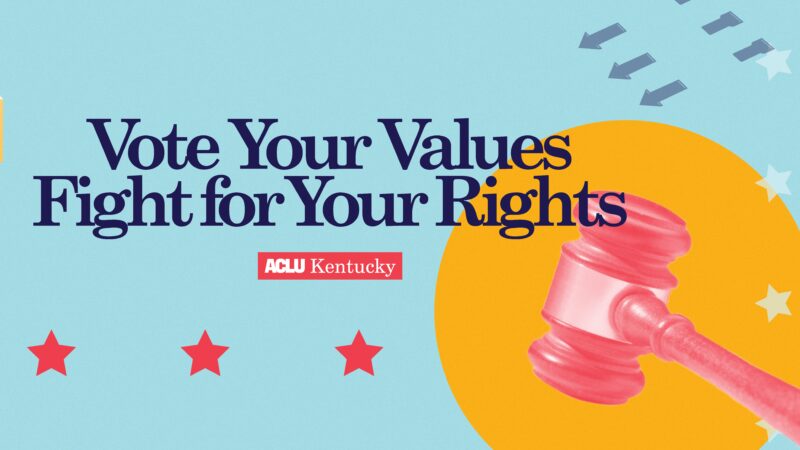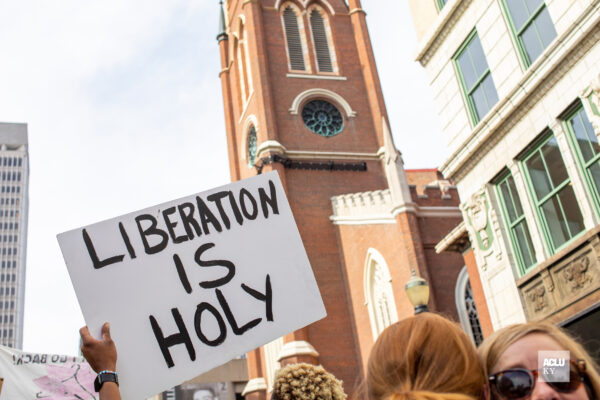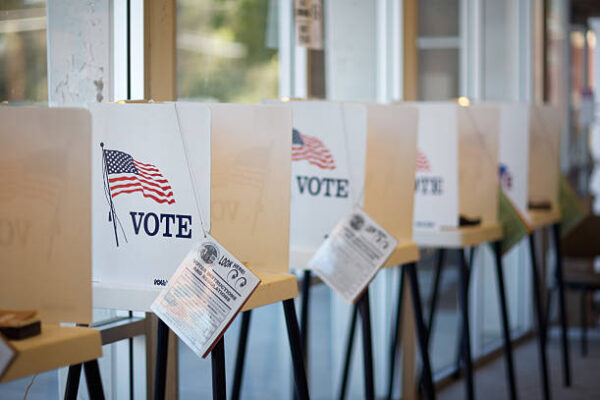2022 Judicial Election Guide
Judicial races often go unnoticed, but are crucial for reforming our criminal legal system. Check out this page for our first-ever 2022 judicial guide to learn about the candidates and make a decision.

There are candidates for all 4 levels of Kentucky's judicial system included in our election guide: the Supreme Court, Court of Appeals, Circuit Courts, and District Courts.
- Supreme Court: This is Kentucky's highest court. Four of the seven seats are up for election this year.
- Court of Appeals: All 14 seats are up for election this year. This court handles cases that have already been tried in District or Circuit Court. Their cases originate when the losing party asks the Court of Appeals to review the lower court's decision.
- Circuit Court: These are Kentucky’s highest trial courts. These courts generally handle civil matters that involve more than $5,000, capital offenses, felonies, land disputes, and contested probate cases.
- District Court: These courts handle juvenile matters, city and county ordinances, misdemeanors, violations, traffic offenses, probate of wills, arraignments, felony probable cause hearings, small claims, and small civil cases.
- Candidates for the Supreme Court and Appeals Court run in one of seven districts. Voters in a particular district can only vote in the race for that district.
- There will likely be several races for different Circuit and District Court seats on your ballot. Visit our Voter Information Center to view a sample ballot and learn more so you're prepared to vote.
Judicial races are on the ballot. We launched our first-ever judicial election guide to help you learn more about the candidates so you can make an informed decision before Election Day, Tuesday, November 8.
View the election guide at the very bottom of this page.
Judicial races often go unnoticed but are crucial to reforming our broken criminal legal system. These judges can reduce incarceration rates, help people seek treatment for substance use disorder, keep children out of adult prisons, and more. However, they could also make these problems even worse by increasing incarceration and denying people the support and rehabilitation they really need.
We are proud to have expanded this guide from the first we ever made before the May 2022 primary election. For the general election, we sent questionnaires to 123 candidates running for seats on the Supreme Court, Appeals Court, and District and Circuit Courts. We received 43 responses.
The majority of Kentucky counties have at least one candidate who responded to our questionnaire on the ballot.
Responses from Supreme Court and Appeals Court candidates cover several areas of the commonwealth. We also sent questionnaires to Circuit and District Court candidates in 11 counties: Boone, Bracken, Campbell, Carroll, Fayette, Franklin, Jefferson, Kenton, McCracken, Oldham, and Shelby. Some races did not have a single candidate respond and are not in the guide below. We hope to continue expanding this guide to include races in more counties for future elections.
How to use this guide:
Find out which candidates will be on your ballot in menus 1 through 5 at the bottom of this page. Once you know, read responses from each candidate in the menus starting after #5. Several races will be on your ballot. Any candidate listed as running in your county will be on your ballot. View a sample ballot here.
Election Day is Tuesday, November 8, 2022.
You can vote in-person on Election Day, Tuesday, November 8, vote early in-person, or vote by mail. Visit our Voter Information Center to learn more about voting, see where to vote, view a sample ballot, and more.
The guide is based on responses to a questionnaire developed by our legal team. It gauges candidates’ views on topics such as self-representation in court, police misconduct, and more. The responses and non-responses are shared verbatim on our website without any editing. The ACLU of Kentucky is non-partisan, so we do not endorse candidates and do not encourage people to vote for any particular candidate. This guide is simply a survey we hope will give you some of the information you need to learn about the candidates and make an informed decision.
The Latest

Faith Leaders Agree: Amendment 2 is an Affront to Religious Liberty

ACLU of Kentucky Foundation Releases 2022 Judicial Election Guide
Stay Informed
Sign up to be the first to hear about how to take action.
By completing this form, I agree to receive occasional emails per the terms of the ACLU’s privacy statement.
By completing this form, I agree to receive occasional emails per the terms of the ACLU’s privacy statement.
